Chronic Pain After a Car Accident in Ontario, Canada
Compensation for Chronic Pain After a Car Accident in Ontario, Canada
Experiencing a car accident is a scarring event that can have lasting consequences on an individual’s physical and emotional well-being. While some injuries may heal with time, others may result in persistent and debilitating chronic pain.
In Ontario, individuals involved in car accidents often find themselves grappling with the challenges of living with ongoing pain long after the initial incident.
Whether you are a car accident survivor or seeking to support someone who is, this comprehensive guide will equip you with the understanding to navigate the complexities of chronic pain and embark on a journey toward improved quality of life.

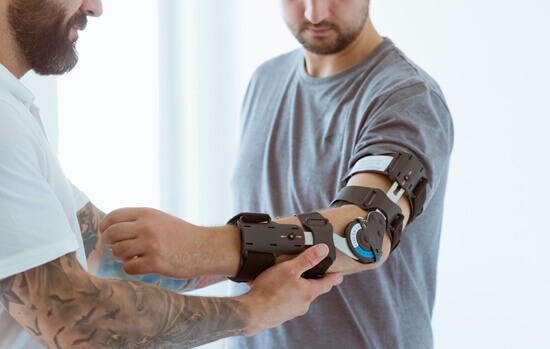
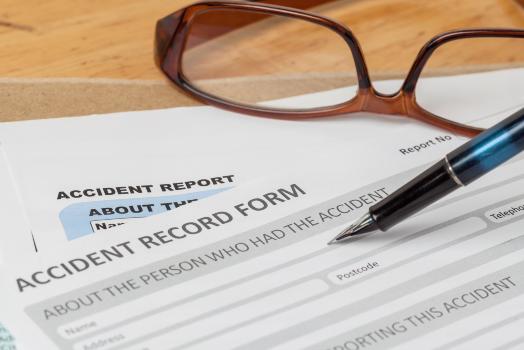
Chronic Pain After a Car Accident in Ontario, Canada
Common Causes of Chronic Pain After a Car Accident in Ontario, Canada
Car accidents can significantly impact an individual’s physical and mental well-being. While some injuries heal over time, others can result in chronic pain that persists long after the accident. Chronic pain is considered pain that lasts for more than three months and can significantly affect a person’s quality of life.
In Ontario, Canada, several factors contribute to the development of chronic pain following a car accident.
- Soft Tissue Injuries: Soft tissue injuries are among the most common causes of chronic pain after a car accident. These injuries affect muscles, tendons, and ligaments and can lead to long-term discomfort and reduced mobility.
Injury to Bones: This can include fractures, dislocation, and ligament tears. Bone injuries can cause pain, swelling, and limited mobility. - Whiplash Injuries: Whiplash is a common suffering sustained in car accidents, particularly in rear-end collisions. It develops when the head and neck are quickly forced forward and then snapped back, causing damage to the muscles, ligaments, and vertebrae in the neck. The neck and shoulders may have chronic pain, stiffness, and a decreased range of motion as a result of this injury.
- Spinal Cord and Nerve Damage: Chronic pain can occur because of spinal cord and nerve injury from car accidents. Herniated discs, spinal fractures, and nerve impingements can result in persistent pain. These conditions may cause shooting pain, numbness, tingling sensations, or even paralysis, depending on the severity of the injury.
- Complex Regional Pain Syndrome (CRPS): Complex Regional Pain Syndrome, also known as CRPS, is a chronic pain condition that can develop after a car accident. It typically affects an arm or leg and is characterized by intense pain, swelling, skin colour or temperature changes, and abnormal sweating. The exact cause of CRPS is not well understood, but it is believed to involve malfunctioning nerves.
- Post-Traumatic Headaches: Headaches are a common complaint following car accidents; for some individuals, they can become chronic. Post-traumatic headaches can persist for weeks, months, or even years after the accident. These headaches may be caused by head injuries, whiplash, or concussions. They substantially impact a person’s daily life and can be mild to severe.
- Herniated Discs: An automobile accident’s impact can put a lot of strain on the spine, which might result in ruptured or bulging discs. These injuries occur when the soft, gel-like center of a spinal disc is pushed out through a tear in the outer layer. Chronic pain can also occur by a herniated disc which can cause numbness and weakness in the affected area as well as radiating pain down the arms or legs.
- Psychological Factors: Chronic pain after a car accident can also have psychological causes. The trauma and stress associated with the accident can trigger conditions such as post-traumatic stress disorder (PTSD), anxiety, and depression, amplifying pain perception. Psychological factors can exacerbate pain symptoms, making it more challenging to manage and treat.
- Delayed Onset of Symptoms: Sometimes, chronic pain after a car accident does not immediately manifest. It is not remarkable for symptoms to appear days or even weeks after the accident. This delayed onset can make it difficult to connect the pain with the initial trauma. In such cases, it is essential to seek medical attention if any pain or discomfort arises, even if it seems minor initially.
Chronic pain following a car accident in Ontario can stem from various causes. Some common culprits are soft tissue injuries, spinal cord and nerve damage, complex regional pain syndrome, post-traumatic headaches, psychological factors, and delayed onset of symptoms. Seeking timely medical attention, proper diagnosis, and appropriate treatment are essential for managing and alleviating chronic pain.
Suppose you have been involved in a car accident and experience persistent pain. In that case, consulting with medical professionals and legal advisors who can guide you through the recovery process and help you pursue the necessary support and compensation is crucial.



Chronic Back Pain After a Car Accident in Ontario, Canada
Chronic Back Pain After a Car Accident in Ontario, Canada
One of the most prevalent and debilitating problems people can face due to injuries sustained in auto accidents is ongoing pain in the back. In Ontario, Canada, car accidents frequently lead to back injuries that can cause long-lasting discomfort and impair daily activities.
Spinal Disc Injuries
The spinal discs, which act like cushions between the vertebrae, can be injured in auto accidents. The impact of a collision can result in herniated discs, bulging discs, or spinal fractures. These injuries can cause chronic back pain due to nerve compression or irritation, inflammation, and instability in the spine.
Facet Joint Dysfunction
The facet joints at the back of the spine can be affected by the forces exerted during a car accident. Facet joint dysfunction occurs when these joints become damaged or inflamed, leading to chronic back pain. The pain may be exacerbated by movement or prolonged sitting and can radiate to the buttocks or legs.
Muscular Strains and Sprains
The sudden impact of a car accident can strain or sprain the muscles in the back, causing chronic pain. These injuries often result from the body being jolted or forcefully twisted during the collision. Muscular strains and sprains can lead to persistent discomfort and limited mobility, affecting daily activities and overall quality of life.
Spinal Stenosis
Car accidents can worsen or accelerate pre-existing conditions such as spinal stenosis. This condition involves narrowing the spinal canal, putting pressure on the spinal cord and nerves. The trauma from an accident can exacerbate spinal stenosis symptoms, leading to chronic back pain, numbness, weakness, and difficulty with balance or coordination.
Treatment Options
Treatment for chronic back pain after a car accident in Ontario may involve a multidisciplinary approach, including:
- Medical professionals may prescribe pain medication, anti-inflammatory drugs, or muscle relaxants to alleviate chronic back pain. In some cases, epidural steroid injections or nerve blocks may be administered to reduce inflammation and relieve temporary pain.
- Physical therapy programs tailored to the individual’s needs can help strengthen the back muscles, improve flexibility, and restore functionality. Techniques such as manual therapy, therapeutic exercises, and electrical stimulation may be employed to manage pain and promote healing.
- Chiropractors specialize in diagnosing and treating musculoskeletal conditions, including chronic back pain. They may use spinal adjustments, mobilization techniques, and other therapies to alleviate pain, restore spinal alignment, and enhance overall well-being.
- Chronic back pain can significantly impact a person’s mental health. Seeking psychological support, such as counselling or therapy, can help individuals cope with the emotional and psychological challenges associated with chronic pain.
- Certain lifestyle modifications can contribute to pain management and overall well-being. These may include maintaining proper posture, engaging in regular low-impact exercises, incorporating stress-reduction techniques, and implementing ergonomic changes at home and work environments.
Dealing with back pain after a car accident in Ontario requires proactive steps to ensure proper medical care, documentation, insurance coverage, and potential legal support. By seeking immediate medical attention, documenting injuries and accident details, understanding insurance coverage, consulting with a personal injury lawyer, and exploring appropriate treatment options, you can effectively manage your back pain, promote healing, and seek compensation for any damages resulting from the car accident.


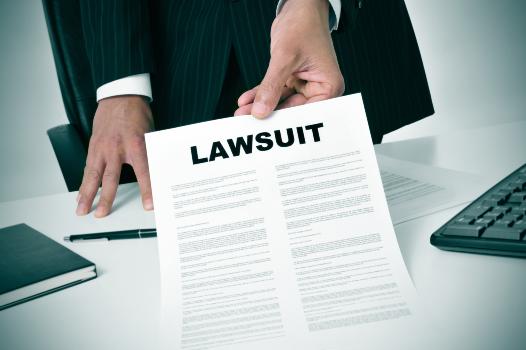
Chronic Neck Pain After a Car Accident in Ontario, Canada
Chronic Neck Pain After a Car Accident in Ontario, Canada
Chronic Neck Pain After Car Accident in OntarioCar accidents can be traumatizing and cause physical and emotional harm. Even minor accidents can result in serious injuries, particularly involving the neck and spine. It can be an exhausting condition that can impact the quality of life of those who suffer from it.
Chronic neck pain is a condition that causes discomfort and pain in the neck region that lasts for longer than three months. This can be caused by different factors, including whiplash, muscle strains, or nerve damage. In Ontario, car accident victims may be entitled to compensation for their injuries, including chronic neck pain.
Symptoms of Chronic Neck Pain
Chronic neck pain can manifest in various ways, including stiffness, soreness, and aching. You may also experience headaches, tingling, and numbness in your neck, arms, or hands. Additionally, you may find it difficult to move your neck or hold your head up for extended periods.
Some of the symptoms are listed here:
- Car accidents can cause injuries to the cervical discs, which are located between the vertebrae in the neck. The impact of a collision can result in herniated discs, bulging discs, or disc degeneration. These conditions can put pressure on the nerves and lead to chronic neck pain, radiating pain down the arms, and other associated symptoms.
- Sudden and forceful movements during a car accident can strain or sprain the muscles and ligaments in the neck. These soft tissue injuries can result in chronic neck pain, muscle spasms, and restricted range of motion. Cervical sprains and strains can take time to heal; without appropriate treatment, they can lead to long-term discomfort.
- The facet joints on the back of the spine can be affected by the forces exerted during a car accident. Facet joint dysfunction occurs when these joints become damaged or inflamed, leading to chronic neck pain. This pain may worsen with movement or prolonged sitting and can radiate to the shoulders or upper back.
- Individuals with pre-existing neck conditions, such as arthritis or degenerative disc disease, may be more susceptible to experiencing chronic neck pain after a car accident. The trauma from the collision can exacerbate these underlying conditions, leading to persistent or worsening pain.
- Following a car accident, individuals may adopt poor posture or altered body mechanics to compensate for pain or discomfort. Over time, this can strain the neck and surrounding structures, leading to chronic neck pain. Additionally, activities or occupations that involve repetitive neck movements or prolonged periods of sitting in improper positions can contribute to the development of chronic neck pain.
If you are experiencing any of these symptoms, seeking medical attention as soon as possible is crucial. Delayed treatment can lead to further complications, such as chronic pain, muscle weakness, and permanent damage.
It’s important to remember that each individual’s experience with chronic neck pain after a car accident is unique, and various factors can contribute to its development.
Seeking timely medical attention, proper diagnosis, and appropriate treatment are essential for managing and alleviating chronic neck pain. Suppose you have been involved in a car accident and experience persistent neck pain. In that case, consulting with healthcare professionals who can guide you through the recovery process and help you pursue the necessary support and treatments is crucial.

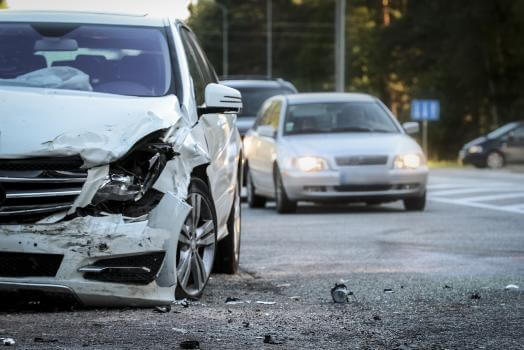

Chronic Pain After a Car Accident Compensation in Ontario, Canada
Chronic Shoulder Pain After a Car Accident in Ontario, Canada
Chronic shoulder pain can significantly impact a person’s daily activities and quality of life. In Ontario, Canada, shoulder injuries are frequently reported following car accidents.
- Rotator Cuff Injuries: A collection of tendons and muscles called the rotator cuff helps to keep the shoulder joint stable. During a car accident, the sudden impact or force can strain or tear the rotator cuff. This can lead to chronic shoulder pain, weakness, limited range of motion, and difficulty performing overhead activities. Rotator cuff injuries can vary in severity, ranging from inflammation (tendonitis) to partial or complete tears.
- Shoulder Dislocation or Instability: The forceful impact during a car accident can cause the shoulder joint to dislocate or become unstable. This happens when the head of the upper arm bone (humerus) pops out of the shoulder socket. If the ligaments, tendons, and muscles surrounding the shoulder are damaged, chronic pain and recurrent dislocations may result.
- Fractures or Broken Bones: Car accidents can lead to fractures or broken bones in the shoulder area, such as the collarbone (clavicle) or upper arm bone (humerus). These injuries can cause chronic shoulder pain, swelling, bruising, and limited mobility. Fractures may require immobilization, surgery, or other interventions to promote proper healing.
- Acromioclavicular (AC) Joint Injuries: The AC joint is located where the collarbone joins the shoulder blade. During a car accident, a direct impact or force can injure the AC joint, leading to chronic shoulder pain. AC joint injuries can range from mild sprains or separations to more severe dislocations, causing instability and discomfort.
- Frozen Shoulder (Adhesive Capsulitis): In some cases, individuals may develop a frozen shoulder after a car accident. Frozen shoulder, or adhesive capsulitis, is characterized by the thickening and tightening of the shoulder joint capsule. This can result in chronic shoulder pain, stiffness, and restricted range of motion. The exact cause of a frozen shoulder has yet to be fully understood. Still, trauma or prolonged immobilization following a car accident can contribute to its development.
- Labral Tears: A ring of cartilage called the labrum covers the shoulder socket and gives the joint support. During a car accident, the shoulder can sustain significant forces that result in labral tears. These tears can cause chronic shoulder pain, instability, catching or popping sensations, and reduced shoulder function.
- Bursitis: The shoulder contains small fluid-filled sacs called bursae, which cushion and reducing friction between the bones, tendons, and muscles. A car accident can lead to bursitis, the inflammation or irritation of the bursae. Chronic shoulder pain, swelling, tenderness, and limited range of motion may be experienced with this condition.
- Nerve Impingement: The impact of a car accident can cause compression or impingement of nerves in the shoulder area. This can result in chronic shoulder pain, tingling, paralysis, or weakness that radiates down the arm. Nerve impingement may occur due to conditions such as a herniated disc, rotator cuff injury, or shoulder instability.
- Tendonitis: Tendonitis refers to inflammation or irritation of the tendons in the shoulder. The forceful movements or trauma experienced during a car accident can lead to chronic shoulder tendonitis. This can cause pain, swelling, and difficulty with overhead activities. Common types of tendonitis in the shoulder include biceps tendonitis and supraspinatus tendonitis.
- Osteoarthritis: In some cases, car accidents can accelerate the development of osteoarthritis in the shoulder joint. Osteoarthritis is a degenerative condition characterized by the wearing down of the cartilage in the joint, leading to chronic shoulder pain, stiffness, and reduced mobility. The accident’s impact can exacerbate the degenerative process, resulting in earlier onset or progression of osteoarthritis.
It’s important to note that each individual’s experience with chronic shoulder pain after a car accident can vary. Seeking prompt medical attention, receiving a thorough evaluation, and following through with recommended treatments can aid in managing and reducing chronic shoulder pain.
Consulting with professional injury lawyers to discuss your compensation claim if you are entitled to it. Get in touch today with our recommended lawyer.

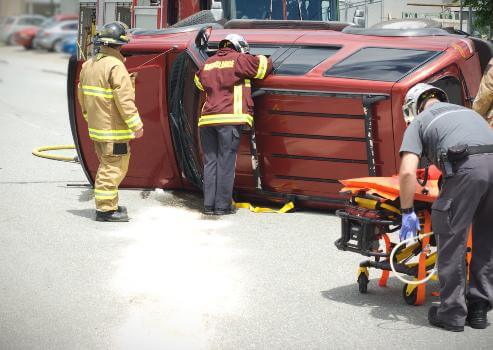

Chronic Shoulder Pain After a Car Accident in Ontario, Canada
Compensation for Chronic Pain Caused by a Car Crash in Ontario, Canada
If you have been in a car accident in Ontario and have suffered chronic pain. As a result, you may be entitled to compensation. The amount of payment you may be eligible for will depend on several elements, including the intensity, duration, and impact of your suffering on your life.
To claim compensation for chronic pain, you must prove that your pain was caused by the car accident. This can be done by providing medical evidence, such as a doctor’s report, confirming that your pain is real and directly related to the car accident.
You will also need to prove that your pain has significantly impacted your life. This can be done by providing evidence of the following:
- The amount of time you have missed from work due to your pain.
- The amount of money you have spent on medical expenses due to your pain.
- The activities you have been unable to do because of your pain.
- The emotional and psychological impact your pain has had on you.
If you can prove that you have suffered chronic pain as a result of a car accident, you may be entitled to compensation for the following:
- Pain and suffering: This is compensation for the physical and emotional pain you have experienced due to the car accident.
- Medical expenses: This is compensation for the cost of medical treatment you received due to the car accident.
- Lost wages: This is compensation for the wages you have lost due to the time you have missed from work because of the car accident.
- Permanent impairment: If your pain is endless, you may be entitled to compensation for the permanent impairment of your ability to work or enjoy your life.
If you have been injured in a car accident and have suffered chronic pain. As a result, you should contact a personal injury lawyer to discuss your legal options. A lawyer can assist you in understanding your rights and represent you in a compensation claim.
Here are some additional tips for filing a claim for compensation for chronic pain caused by a car crash in Ontario:
- Get medical attention right away. The sooner you seek medical attention, the better the evidence will be to support your claim.
- Keep a record of your injuries and pain. This includes keeping a diary of your symptoms, as well as any medical bills or other expenses you have incurred.
- Get a copy of the police report. This will record the incident’s specifics, such as the parties involved, names and the accident’s cause.
- Contact a personal injury lawyer. A lawyer can represent you in a compensation claim and advise you in understanding your legal rights.
*The laws pertaining to automotive injuries are complex and are contsantly evolving. The information on this website was not written by legal professionals and should not be considered legal advise. Please contact a professional personal injury lawyer serving Ontario for the most up to date and accurate information.






